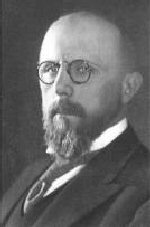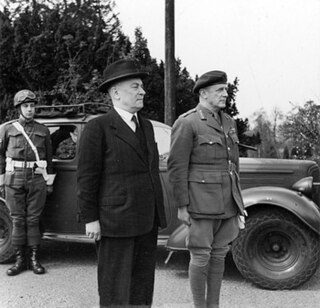
In Belgium, the French Community refers to one of the three constituent constitutional linguistic communities. Since 2011, the French Community has used the name Wallonia-Brussels Federation, which is controversial because its name in the Belgian constitution has not changed and because it is seen as a political statement. The name "French Community" refers to Francophone Belgians, and not to French people residing in Belgium. As such, the French Community of Belgium is sometimes rendered in English as "the French-speaking Community of Belgium" for clarity, in analogy to the German-speaking Community of Belgium.

The Flemish Region, usually simply referred to as Flanders, is one of the three regions of Belgium—alongside the Walloon Region and the Brussels-Capital Region. Covering the northern portion of the country, the Flemish Region is primarily Dutch-speaking. With an area of 13,522 km2 (5,221 sq mi), it accounts for only 45% of Belgium's territory, but 57% of its population. It is one of the most densely populated regions of Europe with around 490/km2 (1,300/sq mi).
The Radio-télévision belge de la Communauté française, shortened to RTBF, is a public service broadcaster delivering radio and television services to the French-speaking Community of Belgium, in Wallonia and Brussels. Its counterpart in the Flemish Community is the Dutch-language VRT, and in the German-speaking Community it is BRF.
Belgischer Rundfunk (BRF) is the public-service broadcasting organisation serving the German-speaking Community of Belgium. Based in Eupen, with additional studio facilities in Sankt Vith and Brussels, BRF produces one television and three radio channels.

The Belgian Resistance collectively refers to the resistance movements opposed to the German occupation of Belgium during World War II. Within Belgium, resistance was fragmented between many separate organizations, divided by region and political stances. The resistance included both men and women from both Walloon and Flemish parts of the country. Aside from sabotage of military infrastructure in the country and assassinations of collaborators, these groups also published large numbers of underground newspapers, gathered intelligence and maintained various escape networks that helped Allied airmen trapped behind enemy lines escape from German-occupied Europe.

Alexandre Galopin was a Belgian businessman notable for his role in German-occupied Belgium during World War II. Galopin was director of the Société Générale de Belgique, a major Belgian company, and chairman of the board of the motor and armaments company Fabrique Nationale d'Armes de Guerre (FN). At the head of a group of Belgian industrialists and financiers, he gave his name to the "Galopin Doctrine" which prescribed how Belgian industry should deal with the moral and economic choices imposed by the occupation. In February 1944, he was assassinated by Flemish collaborators from the DeVlag group.

Victor Auguste de Laveleye was a Belgian liberal politician and minister. He also served as announcer on Radio Belgique during World War II.

The Belgian Government in London, also known as the Pierlot IV Government, was the government in exile of Belgium between October 1940 and September 1944 during World War II. The government was tripartite, involving ministers from the Catholic, Liberal and Labour Parties. After the invasion of Belgium by Nazi Germany in May 1940, the Belgian government, under Prime Minister Hubert Pierlot, fled first to Bordeaux in France and then to London, where it established itself as the only legitimate representation of Belgium to the Allies.

The Banque de Bruxelles was a prominent bank in Brussels, established in 1871 and merged in 1975 with Banque Lambert to form Banque Bruxelles Lambert. It was Belgium's second-largest bank for most of its existence, behind the Société Générale de Belgique and, from 1934 onwards, its spun-off banking subsidiary.
Marc Sevenants, better known by the pseudonym of Marc Danval, was a Belgian journalist, author, artist and columnist, who wrote about Belgian food and jazz. In his early career he also worked as an actor.

Maxime Steinberg (1936–2010) was a Belgian historian and teacher who wrote extensively on the Holocaust in Belgium. He has been described as "Belgium's principal Holocaust historian" and was best known for his three-part history of the subject entitled L'Étoile et le Fusil, published in 1983–87.
Events in the year 1870 in Belgium.
Events in the year 1872 in Belgium.

Events in the year 1859 in Belgium.

Henri Borguet was Belgian entrepreneur who built in Belgium the first steam passenger railway in continental Europe, between Brussels and Mechelen.

Belgian heraldry is the form of coats of arms and other heraldic bearings and insignia used in the Kingdom of Belgium and the Belgian colonial empire but also in the historical territories that make up modern-day Belgium. Today, coats of arms in Belgium are regulated and granted by different bodies depending on the nature, status, and location of the armiger.

The Flagey Building also known as the Radio House is a building located in Ixelles, a municipality of Brussels, Belgium, housing the Flagey cultural centre. It is located on the south-western corner of Place Eugène Flagey/Eugène Flageyplein, with its main entrance on the Place Sainte-Croix/Heilig-Kruisplein.

Fernand (Nand) Geersens was the Dutch-language voice of Radio België, the channel of the Belgian National Radio Broadcaster (BNRO) during World War II which broadcast from London. He was known by the nom de guerre Jan Moedwil.

Walter Marie Joseph Emile Victor Désiré Arthur Armand Louis Loridan was a Belgian diplomat and academic.
José Gotovitch was a Belgian historian who specialised on the political and social history of Belgium during World War II as well as the history of Communism. He is best-known for the bestselling book L'An 40 (1971), which was co-written with Jules Gérard-Libois and is considered a landmark study in Belgian historiography.














